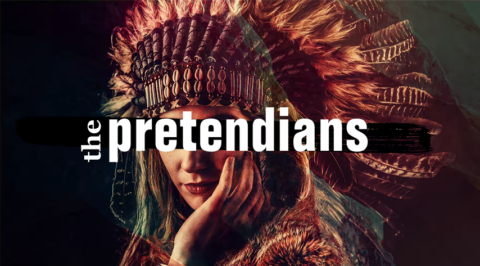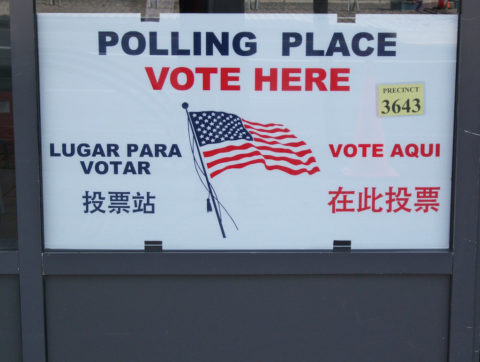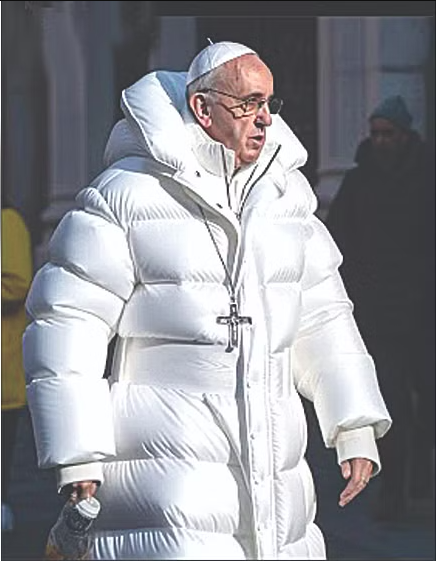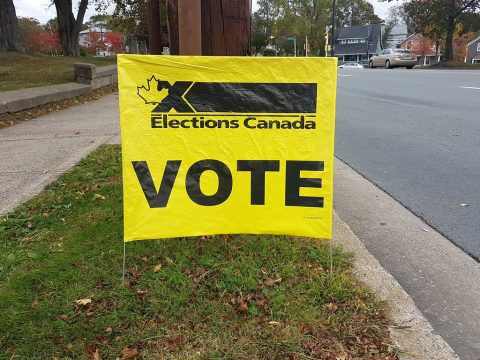… effrontery has made great strides as a key to success in life, and indeed quite ordinary people now employ it routinely. There are consultants in effrontery training who not only commit it themselves but teach others how to commit it, and charge large sums for doing so. There was a time when self-praise was regarded as no praise, rather the reverse; but now it is a prerequisite for advancement.
The other day I was sent a video of a young woman — elegant, attractive, and very self-confident — giving a seminar on how other young women, one of them the daughter of a friend, could and should change their lives for the better. In a way, I admired the leader of the seminar’s effrontery (just as I secretly admire Thomas Holloway’s). She spoke in pure, unadulterated clichés, practically contentless, but with such force of conviction that, if you discounted what she actually said, you might have thought that she was a person of profound insight with a vocation for imparting it to others. Her audience was as lambs to the slaughter, or at least to the fleece; they had paid a large sum of money to listen to mental pabulum that would make the recitation of a bus timetable seem intellectually stimulating.
On catching glimpses in the past of American television evangelists, it was always a cause of wonderment to me that anyone could look at or listen to them without immediately perceiving their fraudulence. This fraudulence was so obvious that it was like a physical characteristic, such as height or weight or color of hair, or alternatively like an emanation, such as body odor (incidentally, pictures of Guevara always suggest, to me at any rate, that he smelled). How could people fail to perceive it? Obviously, many did not, for the evangelists were very successful — financially, that is, the only criterion that counted for them.
But the attendees of the seminar of which I saw a video clip were well educated, and still they did not perceive the vacuity, and therefore the fraudulence, of the seminar that they attended at such great expense to themselves.
But was not my own surprise at their gullibility a manifestation of my own gullibility, in supposing that intelligence and education make a man wise, rather than more sophisticated in his foolishness?
But at least most of their victims were uneducated, relatively simple folk.
Theodore Dalrymple, “The Way of Che”, Taki’s Magazine, 2017-10-28.
August 21, 2023
QotD: Effrontery, snake oil and TV preachers
April 14, 2023
The trust deficit is getting worse every day
Ted Gioia provides more evidence that the scarcest thing in the world today is getting ever more scarce:
Here are some news stories from recent days. Can you tell me what they have in common?
- Scammers clone a teenage girl’s voice with AI — then use it to call her mother and demand a $1 million ransom.
- Millions of people see a photo of Pope Francis wearing a goofy white Balenciaga puffer jacket, and think it’s real. But after the image goes viral, news media report that it was created by a construction worker in Chicago with deepfake technology.
- Twitter changes requirements for verification checks. What was once a sign that you could trust somebody’s identity gets turned into a status symbol, sold to anybody willing to pay for it. Within hours, the platform is flooded with bogus checked accounts.
- Officials go on TV and tell people they can trust the banking system—but depositors don’t believe them. High profile bank failures from Silicon Valley to Switzerland have them spooked. Over the course of just a few days, depositors move $100 billion from their accounts.
- ChatGPT falsely accuses a professor of sexual harassment — and cites an article that doesn’t exist as its source. Adding to the fiasco, AI claims the abuse happened on a trip to Alaska, but the professor has never traveled to that state with students.
- The Department of Justice launches an investigation into China’s use of TikTok to spy on users. Another popular Chinese app allegedly can bypass users’ security to “monitor activities on other apps, check notifications, read private messages and change settings.”
- The FBI tells travelers to avoid public phone charging stations at airports, hotels and other locations. “Bad actors have figured out ways to use public USB ports to introduce malware and monitoring software onto devices,” they warn.
The missing ingredient in each of these stories is trust.
Everybody is trying to kill it — criminals, technocrats, politicians, you name it. Not long ago, Disney was the only company selling a Fantasyland, but now that’s the ambition of every tech empire.
The trust crisis could hardly be more intense.
But it’s hidden from view because there’s so much information out there. We are living in a culture of abundance, especially in the digital world. So it’s hard to believe than anything in the information economy is scarce.
Whatever you want, you can get — and usually for free. You can have free news, free music, free videos, free everything. But you get what you pay for, as the saying goes. And it was never truer than right now — when all this free stuff is starting to collapse in a fog of fakery and phoniness.
Tell me what source you trust, and I’ll tell you why you’re a fool. As B.B. King once said: “Nobody loves me but my mother — and she could be jivin’ too.”
Years ago, technology made things more trustworthy. You could believe something because it was validated by photos, videos, recordings, databases and other trusted sources of information.
Seeing was believing — but not anymore. Until very recently, if you doubted something, you could look it up in an encyclopedia or other book. But even these get changed retroactively nowadays.
For example, people who consult Wikipedia to understand the economy might be surprised to learn that the platform’s write-up on “recession” kept changing in recent months — as political operatives and spinmeisters fought over the very meaning of the word. It got so bad that the site was forced to block edits on the entry.
There’s an ominous recurring theme here: The very technologies we use to determine what’s trustworthy are the ones most under attack.
Trust used to be a given in most western countries … it was a key part of what made us all WEIRD. Mass immigration from non-WEIRD countries dented it, but conscious perversion of trust relationships by government, media, public health, and education authorities has caused far more — and longer lasting — damage to our culture. Trust used to be given freely, but now must be earned. And that’s difficult for organizations that have proven repeatedly that they can’t be trusted.
April 1, 2023
The fastest growing demographic in Canada might be the “Pretendians”
In Quillette, George Case outlines the fraught topic of claimed First Nations heritage among Canadians:

“The Pretendians”, a CBC documentary – https://www.cbc.ca/passionateeye/episodes/the-pretendians
Many North Americans have cited such extraction as a conversation piece, an exotic mark of character, or just an intriguing bit of genealogy: among them are singers Cher and Beyoncé, actor Johnny Depp, rockers Jimi Hendrix and Robbie Robertson, baseball great Johnny Bench, and numerous others.
That such backgrounds are both perfectly plausible and difficult to verify tells us something about the history of the human species since 1492. Consensual or coerced relations between Europeans, Africans, and Indigenous people throughout the Americas — even when socially deplored or officially prohibited—must have happened countless times to generate the populace we are today. Most of us, by some measure, are mini-melting pots. And consider, too, today’s routine unions of partners whose great-grandparents might have been horrified at the prospect of “marrying out”: Protestants with Catholics, Jews with Gentiles, Asians with Anglos, and a rainbow of other combinations. Indeed, to oppose such relationships, and the products thereof, is now usually seen as a small-minded prejudice of the ignorant and intolerant.
Unless the opponent happens to be a Native person. In Canada, over the last few years, a rash of scandals have erupted over prominent figures whose claims of Aboriginal heritage have been heatedly disproved, like novelist Joseph Boyden, actress and filmmaker Michelle Latimer, academic Carrie Bourassa, and former judge Mary Ellen Turpel-Lafond. The uproar around “Pretendians” has raised uncomfortable questions around race and politics that the angriest Aboriginals may not have intended in their denunciations. Métis lawyer Jean Teillet has called the phenomenon “the ultimate step in colonialism”, while on The Indigenous Foundation website, Neegahnii Madeline Chakasim has asserted, “To claim Indigenous ancestry and/or claim to be a member of a Nation without any evidence, or claiming Indigeneity for the fun of it, is a complete slap to the face of any existing Indigenous person.” And Ojibwe writer Drew Hayden Taylor explained the message of his 2022 documentary, The Pretendians, by remarking, “In past centuries, the dominant culture has tried to take so many things from us, leaving behind the one thing most important to us: who we are.”
Yet just who are “we”? As with so much else in conventional Canadian wisdom around Native issues, the jealous guarding of authentic Native identity has its logical terminus in a separate-but-equal regime that contradicts the universal impartiality promised to all citizens: sanctioned racial essentialism for Aboriginals, mandatory multiculturalism for everyone else. Never discriminate against, but always discriminate in favor. In principle, all people are to be treated interchangeably, but in practice, one subset of people must be impermeably sealed off from others. At its creepiest, the Pretendian problem has echoes of the one-drop standards that obtained in Nazi Germany and the Jim Crow American South, insofar as sorting the real Natives from the fake ones is determined in part by a biological purity that few other cultures attempt to preserve, much less openly endorse.
It’s also ironic that in many episodes of exposed Pretendians, the purported disadvantage of a Native background — statistically, Canadian Natives are poorer than non-Natives, suffer higher rates of addiction and suicide, and have long been overrepresented in prisons and as victims of crime — is used as a bonus credential in academia or the arts. Schools and other institutions eager to boast of their ameliorative “Indigenization” programs have hired, commissioned works by, or otherwise granted special recognition to applicants based on unchecked claims of Aboriginal ancestry.
Eventually — and inevitably — some of those claims turn out to be flimsy: a vague personal biography here, a tenuous adoption record there, suspicious gaps in government documentation (Canadian Natives are entitled to hold a “Status Indian” card issued by federal or provincial agencies) somewhere else. This has happened across Canada, from Vancouver’s Emily Carr University of Art and Design, where faculty member Gina Adams’s Native lineage was called into question in 2021, to Kingston Ontario’s Queen’s University, where no less than six instructors and staff had their Native self-identification doubted in an anonymous report that came out the same year.
Complicating these situations, however, is that few of these cases seem to have been deliberate frauds. Even the famous imposter Archie Belaney (1888–1938), an Englishman whose Scottish-Apache persona of “Grey Owl” was wholly invented, parlayed his imaginary Native status into genuinely progressive campaigns for wilderness conservation in the early 20th century.
February 20, 2023
“There is no way Justin Trudeau won any of the last three elections”
Elizabeth Nickson on recent rather alarming confirmation of many things told by various “conspiracy theorists” and purveyors of “misinformation”:
Cracks are beginning to appear in the massive election fraud strategy prosecuted against western democracies. Berlin last week reversed its city election because it had been stolen by the left, and Berliner-Zeitung revealed that a team of reporters from The Marker, Haaretz and Radio France had gone undercover for six months as clients of a company that did nothing but election theft. That company, Jorge, had “intervened in 33 national election campaigns and votes. In 27 cases, it is said to have influenced the elections in favor of its clients. In order to control the opinion on the Internet, the secret company controls over 30,000 credible fake accounts on social media platforms”.
And in Canuckistan this morning, in the organ of the bien-pensant liberal establishment, there was this nugget.
There is no way Justin Trudeau won any of the last three elections. And, honey, this little story from Canada’s most prestigious newspaper is just the beginning.
But first, a story of my own …
When I turned right I had been hired to write an op-ed column for the above Globe and Mail, and what unfurled from my fingers was pure conservatism. I’d hold up my fingers and think, What the hell? Where did that come from? But I continued, and as I did, family and friends sheered away until, except for my mother, I was left virtually friendless.
I had moved back to Canada, you see, and we are 100% captured by the left. There are a handful of conservative writers in the country, but they are soft and weak and they prevaricate because otherwise they would not eat. Luckily I had spent most of my adult life out of the country, had a broader pool to draw from, and given my new thinking, mirable dictu for every friend I lost, I made five new ones. And they were smarter, more responsible, more interesting people. I missed the clothes, restaurants and parties for a while, then I gave up on those too. Essentially, sickening. Finally corrupting.
But it continues, since we live in a hard-left community. We are isolated. Even Jamie, because he lives with me, has lost friends and family. We have his sons, his ex-wife, one of my brothers. The rest are just cold, pitiless. Cruel.
This has happened to hundreds of thousands of people. It’s called “bad-jacketing” and is part of the Fifth Generation Warfare launched against malcontents large and small (like me) up and down the social ladder. Millions. Tens of millions. The competent are targeted, isolated and bad jacketed. It is meant to drive the competent out of the culture. Why is everything breaking? Why is the economy failing? Everyone left in the system is incompetent and vicious with it. It’s why Soviet Russia failed, why the Eastern Bloc collapsed, it is why China went for a capitalist hybrid. Everywhere socialism is tried it destroys the competent and then destroys everything else.
The left is implacable and they punish. They hurt you until you give up. They will break anything you have. Thinking about helping a young neighbor last month, which would require a week or more of brutal work, I finally thought: I have not helped or befriended one single socialist — and she was an avowed socialist — who hasn’t eventually stabbed me in the back. Not one.
When I was driven out of the profession, I spent ten years studying. Was I right? Was I wrong? I should have signed up for a remote doctoral program, because I worked. I study, therefore I am. I studied therefore I was, should be written on my cremation plaque in the family plot. Not that they’ll let me in.
We are all intimidated by that level of hate and exclusion. All of us, politicians, editors, bureaucrats, charities, all of us are terrified of being taken down in our personal lives. Bad-jacketed, rejected by those you love deeply. I know how that feels and I bet you do too.
October 25, 2022
QotD: How con-men and charlatans use the Forer Effect
The Forer Effect is a trick used by astrologers, psychics, and social psychologists. Given a list of statements like these:
- You have a great need for other people to like and admire you.
- You have a tendency to be critical of yourself.
- You have a great deal of unused capacity which you have not turned to your advantage.
- While you have some personality weaknesses, you are generally able to compensate for them.
- Your sexual adjustment has presented problems for you.
- Disciplined and self-controlled outside, you tend to be worrisome and insecure inside.
- At times you have serious doubts as to whether you have made the right decision or done the right thing.
- You prefer a certain amount of change and variety and become dissatisfied when hemmed in by restrictions and limitations.
- You pride yourself as an independent thinker and do not accept others’ statements without satisfactory proof.
- You have found it unwise to be too frank in revealing yourself to others.
- At times you are extroverted, affable, sociable, while at other times you are introverted, wary, reserved.
- Some of your aspirations tend to be pretty unrealistic.
- Security is one of your major goals in life.
… most people will agree that the statements accurately describe them. In fact, most people will feel like they’re unusually accurate descriptions, which is how astrologers get you.
What statements show a Forer effect? Wikipedia just says they should be vague and somewhat positive. Can we do better?
A lot of Forer statements above are about the contrast between internal experience and outward behavior — for example “disciplined and self-controlled outside, you tend to be worrisome and insecure inside”. All of this is implicitly comparative — since there’s no objective measure for how disciplined you should be, “disciplined” implicitly means “more disciplined than other people”. Take this into account, and you can rephrase many of these statements as “Although everyone else is really X, you are Y pretending to be X”.
Now the trick is obvious. You can access your internal experience, and you know what kind of things you’re pretending. But you can only access everyone else’s external presentation, which (absent specific evidence otherwise) you mostly believe. So whenever everyone is Y pretending to be X, it will feel like “although everyone else is really X, I am Y pretending to be X”.
Consider the fifth statement above: “Your sexual adjustment has presented problems for you”. Everyone has to go through their own sexual adjustment. But usually they hide it from everyone else except maybe some unlucky early sexual partners. Sexual adjustment is terrible, and so without any opportunity to calibrate, most people assume it can’t possibly be quite that bad for other people. So if an astrologer reads a star-chart and predicts “I bet you had an unusually tough sexual adjustment”, most people will agree the astrologer is right.
Scott Alexander, “Forer Statements as Updates And Affirmations”, Astral Codex Ten, 2022-07-27.
September 22, 2022
Why Electronic Voting Is Still A Bad Idea
Tom Scott
Published 9 Dec 2019We still shouldn’t be using electronic voting. Here’s why.
(more…)
July 26, 2022
Flying Failures – Christmas Bullet (The Worst Plane Ever Built)
Ruairidh MacVeigh
Published 25 Dec 2020Merry Christmas everyone! 😀
To coincide with this most special of holidays, in this episode of Flying Failures we will be examining the dubious history of the Christmas Bullet, a divisive little plane that could either be seen as the brainchild of a man whose ambition outweighed his abilities, or perhaps one of the greatest cons in aviation history, a con that left two planes destroyed, two test pilots dead, and the US taxpayer several million dollars out of pocket.
(more…)
December 11, 2021
Pretendians in Canadian academia may resemble “those legendary Klan gatherings where everyone is an uncover FBI agent”
After recounting the rise and fall of Carrie Bourassa, Ed West looks at other examples of white people deliberately passing themselves off as members of First Nations groups and other disadvantaged groups:

Carrie Bourassa with media.
Lead photo in Geoff Leo’s article for the CBC – https://www.cbc.ca/newsinteractives/features/carrie-bourassa-indigenous
… then some serious allegations came to light casting doubt on Morning Star Bear’s fitness for office: Bourassa, it turned out, was white. Her forebears were all Russian, Czech and Polish farmers, who while the Metis struggled with the arrival of the Europeans were back in Tsarist Russia, living lives of unbridled white privilege as agricultural workers.
The response was merciless anger. Bourassa’s colleague Winona Wheeler, an associate professor of Indigenous Studies at the University of Saskatchewan, told the Canadian Broadcasting Corporation that what she did was “abuse” and “theft”, “colonialism in its worst form and it’s a gross form of white privilege.”
Another called her “the modern-day Grey Owl” in reference to the famous early 20th century English conservationist who had managed to convince the world he was Native American, rather than being Archibald from Hastings.
Bourassa’s outing was followed last weekend by that of Jessica Bardill, an “indigenous” language speaker at Montreal University who was reportedly suspended because of doubts about her race. And who could have suspected she was white?
Bourassa and Bardill are hardly exceptional: the past two years have seen at least half a dozen similar racial unmaskings, almost all female academics. Is this the result of the strange racial spoils system created by affirmative action, or does it reflect the cultural emptiness felt by some North Americans, the unbearableness whiteness of being?
Among them is Suzy Kies, an indigenous “expert” in – yet again – Canada, on whose advice a Catholic school district burned 30 library books about indigenous people, removing another 4,700. Kies had become quite a prominent figure on all matters indigenous; again, how could they have possibly noticed?
One suspects that a conference of Canada’s indigenous educators would turn out like those legendary Klan gatherings where everyone is an uncover FBI agent, or that meeting of Holocaust survivor memoir writers where both were fake.
Many of these “indigenous” experts had risen far by telling white liberals what they wanted to hear, confirming their worldview. The same was true of @Sciencing_Bi, who enthralled Twitter last spring with her powerful denunciations of sexual misconduct in higher education. The mysterious young woman had grown up in Alabama, a member of the Hopi tribe, but had “fled the south because of their oppression of queer folk”. Sadly, Sciencing Bi contracted Covid in April 2020, having been forced by her cruel university to do in-person teaching just at the point when that issue was becoming a culture war hot topic, and died, quite unusually for someone so young.
November 25, 2021
Are there any actual First Nations people on government commissions, or are they all Pretendians?
There are few enough opportunities for First Nations people in Canada to be heard and for their efforts to matter on issues of concern to all First Nations people … so why do so many of those positions seem to be held by people who lie about their First Nations ancestry? (The original CBC story is from back in September, but I only found out about it today, with my usual great sense of timing.)
Suzy Kies, the co-chair of the Indigenous peoples’ commission of the Liberal Party, has resigned from the position after her claim to Indigenous ancestry was called into question.
Radio-Canada reported on Wednesday that it could not confirm Kies’s claims to Indigenous ancestry. Kies told Radio-Canada in an interview that her father is of European descent and her mother is of Indigenous descent.
“My mother’s family is from several communities,” she told Radio-Canada in an interview in French. “On my grandfather’s side, it’s the Maliseet, from St. Mary’s, New Brunswick, there are also the Laporte who are Innu. And my grandmother was Abenaki from Odanak.”
In Radio-Canada’s reporting, they consulted civil status records and the Abenaki Council of Odanak, who did not find Kies on the band list.
The story came following controversy over a book-burning project at a francophone Ontario school board in which Kies was involved. The event, which was carried out by the Conseil scolaire catholique Providence in 2019, has resurfaced during the election campaign and has attracted condemnation by federal leaders.
The event was meant to promote reconciliation by burning and disposing of books the school board deemed to contain outdated and inappropriate depictions of Indigenous people. The books included novels, comic books and encyclopedias, according to a documentary obtained by Radio-Canada. Nearly 5,000 books were disposed of, but only around 30 were burned.
H/T to halls of macadamia for the link.
Update: A disturbing number of white American college applicants are lying about their racial ancestry to (significantly) improve their chances of being accepted, so I guess Canadian Pretendians are just slightly ahead of the curve:
The survey of 1,250 white college applicants ages 16 and older found that the most popular racial claim was Native American. Out of the 34 percent of white college applicants who lied about their race, 77 percent were accepted.
“It’s the easiest lie to tell because you can’t get caught in it,” said Vijay Jojo Chokal-Ingam, an admissions consultant at SOSAdmissions.com and author of Almost Black: The True Story of How I Got Into Medical School By Pretending to Be Black.
“A lot of people, based on very flimsy reasons, claim to be either African-American, Hispanic or Native American because they know it’s going to improve their chances,” Chokal-Ingam said in an interview with The College Fix.
Though lying on college applications is frowned upon, universities typically do not push back on students about their race. Instead, they accept it regardless of what they look like, he said.
“It’s become a joke,” Chokal-Ingam said.
He cited Senator Elizabeth Warren, who famously “lied about her race to get a faculty position at Harvard.”
“If there was a degree to which people felt guilt about doing that, it died with Warren because the Boston Globe, the New York Times, the Washington Post — they all ran to her defense,” he said. “This prompted an ‘if she can do it, I can do it too’ ideology.”
“When President Trump called Senator Elizabeth Warren ‘Pocahontas’, [the media] called him a racist. They said it was a racist thing. On the contrary, I think that he was bringing to attention a very important issue in the field of racial-race relations,” Chokal-Ingam said. “He was making people aware of the fact that people routinely, on a massive scale, lie about their race.”
H/T to Glenn “Instapundit” Reynolds, who pointed out, “If white supremacy were actually a thing, this wouldn’t be happening”.
November 20, 2021
QotD: Cheating with both hands
The linked analysis of these four events is very easy to read [here] – or so say I, but for five years my work was researching aspects of statistical anomalies, so here is my summary for anyone who feels differently.
Batches of counted votes can be very unbalanced towards either candidate or they can be large, but there is a strong inverse relationship between the two. The paper analyses a lot of data to show the improbability of both very unbalanced and very large. This is a good test because it tends to get past fraudsters, who are focussed on the raw margin of votes more than the ratio or the batch size.
A secondary tell – and this one is already well-known in fraud detection in third-world countries – is improbable ratios of the losing candidate to minor candidates, e.g. Trump getting little more than twice as many votes as the minor candidates in the second Michigan anomaly when the state’s average (calculated including that data point) was 31 to 1. The paper finds this combination of grossly-violated size-margin ratio and grossly-violated Trump-to-third-party ratio particularly suspicious (as do I). It also computes what happens if you pull these four data points in towards merely the 99th percentile of the size-margin relationship – leaving them still anomalous but not so wildly implausible. (Biden loses his alleged lead in all three states.) It also notes some related statistical oddities.
My guess is that the idea of the US waking up to what I’d woken up to – Trump the heavy odds-on favourite – terrified his enemies. Their pre-election narrative was that Trump would at first “appear” to win, after which “days and weeks of counting” (Zuckerberg) would show he had lost. But while Zuckerberg promised to “educate” America to believe in that, I think someone in the early hours of the 4th panicked that if the US electorate woke up to a bookies-call-it-for-Trump breakfast on Wednesday morning, that would never be erasable from the US mind, no matter how many votes they then “found”. So they made sure that didn’t happen. (You never know: it might yet be that what they did to prevent that becomes equally hard to remove from America’s consciousness. You don’t have to be a statistician to think a sudden step function in a smooth graph looks odd.)
So the good news is that my memory for numbers is working fine. The bad news is that I may lose a night’s sleep next election. The very first of the four anomalous points went into the Georgia vote totals soon after 6:30 AM my time – half-an-hour after the normal rising time of Donald Trump and Margaret Thatcher, I am told. (I guess the reason I’m not PM or president is that I’m usually asleep then.) When I first glanced at the results, I thought Georgia was surprisingly close given e.g. the Florida result, but if I’d missed the other three oddities as completely as Georgia’s, I’d have been far less cautious in reviewing the outcome.
Niall Kilmartin, “Good News! I can believe my eyes”, Samizdata, 2020-12-01.
November 12, 2021
One Pretendian’s “cultural Munchausen syndrome”
In Thursday’s NP Platformed newsletter, Colby Cosh updates us on the story of Carrie Bourassa, who had effortlessly surfed to high profile, well-remunerated positions at the University of Saskatchewan and with the federal government largely on the basis of her claimed First Nations background:

Carrie Bourassa with media.
Lead photo in Geoff Leo’s article for the CBC – https://www.cbc.ca/newsinteractives/features/carrie-bourassa-indigenous
Newspapers have a slightly nasty characteristic: it’s easy for them to get pre-emptively mad when institutions are a little slow to do the right thing, and it’s also easy for them to forget to give credit when those institutions get around to it.
So let’s acknowledge that the federal government and the University of Saskatchewan are dealing — as best they can, almost certainly — with their shared Carrie Bourassa problem.
Two weeks ago, CBC News investigative reporter Geoff Leo published an astonishing tour de force. His feature article established, beyond almost any doubt, that Bourassa, a high-profile Indigenous scholar who told and published countless stories of racist treatment and childhood adversity, is actually a fabulist from a wealthy white family. The Institute of Indigenous Peoples’ Health soon put Bourassa, its scientific director, on unpaid leave. The U of S suspended her with pay, probably having no better immediate alternative.
[…]
Since Prof. Bourassa was put on ice in her lucrative Aboriginal-health jobs, Indigenous folk have been labouring to explain in the press what was wrong with her concoction and aggressive peddling of a fake Métis upbringing on the mean streets of Regina. Drew Hayden Taylor’s Globe and Mail op-ed about Bourassa’s “cultural Munchausen syndrome” is instructive and funny, but we hope it is all right to tell Aboriginal-Canadians that no white settler with a lick of sense would consider Bourassa’s tapestry of falsehoods to be harmless “fibs”. This may be a self-serving observation, but her confabulations about her personal history wouldn’t be consistent with the standards of a newspaper, let alone those of a university.
About a year ago, the Saskatchewan Health Research Foundation gave Bourassa an award (not her first) and published a capsule summary of her career. If you read it, you will notice how she was, from time to time, offered career advancement out of the blue by Indigenous supporters who had been taken in by her stories. Even a white grad student living on ramen in a basement apartment might be a little ticked about this. The University of Saskatchewan’s original claim that Prof. Bourassa hadn’t benefited from claiming Aboriginal ancestry is pathetic hokum: Bourassa tellingly accused her own sister of “looking for … a way to make some money” by accepting Indigenous scholarship funds during her PhD studies.
And it probably occurred to the USask brass sometime between the two press releases that an investigative reporter like Leo, in taking on a topic, always looks a couple articles ahead. Bourassa, for example, claims to have suffered from tuberculosis in her late 20s — a useful credential, unfortunately, for someone studying the field of Indigenous health. It’s useful because the disease has been nearly eliminated among non-Indigenous Canadians: the incidence rate for First Nations is 40 times higher, and the cases tend to be concentrated in remote northern Indigenous communities. Even if we overlook Bourassa’s propensity for creative autobiography … well, if she contracted TB, she was certainly very unlucky.
November 6, 2021
QotD: Michael Bellesisles
… I offered a very limited defense of the History Biz. It’s not just that they’re rabid Leftists, I said. I mean, yeah, they are, no denying that, but outright “writing the conclusion before you even start asking the question”-type fraud, Michael Bellesisles-type fraud, is a lot rarer than you probably think.
Bellesisles, you might recall, is the guy whose revolutionary revisionist thesis was that the Founders weren’t really all that enthusiastic about guns, and didn’t own that many, and that whole 2nd Amendment thing was just an afterthought. Yeah, right. That one was written conclusion first, and since no remotely objective look at the evidence could ever possibly support it, he resorted to making lots of “evidence” up. But the reaction of the rest of the profession was interesting: They lauded Bellesisles to the skies. He won the Bancroft Prize for his work, which is the biggest one you can get in American history. Now, I’m sure you’re saying “of course they praised him, he was telling them exactly what they wanted to hear!”, and you’re right …
… but only to a point. Because eggheads are — as you might imagine — the pettiest, most envious bunch of little bitches this side of a junior high cheerleading squad, there’s no piece of research so meticulous, no conclusion so solid, that someone isn’t going to tear into it in one of the professional journals, for base personal reasons if no other. Lest you think I’m kidding, I personally know of a woman at a big league school whose husband was seduced, and her marriage ruined, by an open, obnoxious lesbian colleague, all because she, the hetero, had dared to question some of the lesbian’s work at a conference in their mutual field.
That’s the level of pettiness we’re dealing with here. And I can’t say for absolute certain that Bellesisles received no criticism whatsoever; he doesn’t work in my field, so even though I was certain that Arming America was bullshit of the purest ray serene, it wasn’t my problem, professionally speaking. But whatever, point is, in my fairly well-informed opinion, merely “telling them what they want to hear” doesn’t account for the entire profession ignoring the huge, blinking, neon red flags surrounding Arming America. Rather, I suggest it’s more of a Pauline Kael thing.
I actually kinda pity Kael — much like John Montagu, the 4th Earl of Sandwich, she was a fairly big wheel back in her day, but if she’s known at all now, it’s for something entirely peripheral to her life’s work. In Kael’s case, it’s her declaration that it was impossible for Richard Nixon to have won in 1972, since “nobody I know voted for him” (it was one of the biggest blowouts in American electoral history). The Arming America thing is, I think, like that — nobody in academia owns a gun, or knows anyone who owns a gun, or knows anyone who knows anyone who owns a gun. So, yeah, they know all the scary statistics about how there are sixty gorillion more guns than people in America, but all of that iron belongs to the Dirt People, far away over the horizon. They’d never in a million years even be in the same zip code as someone who thinks Arming America was absurd on its face. Hence, it never occurred to them to question it.
It helped that Bellesisles was telling them what they wanted to hear, no doubt, but the main reason nobody challenged it was that they lacked the cognitive toolkit to even consider the possibility he might be wrong.
Severian, “Are They Trying to Lose?”, Rotten Chestnuts, 2021-07-15.
October 30, 2021
“Pretendians” … members of the Wannabe tribe … people who fake First Nations ancestry for personal gain
I missed Thursday’s NP Platformed newsletter when it first came out, where Colby Cosh praised a CBC “longread” which dug into the oft-trumpeted heritage of a prominent Saskatchewan university official and did a thorough job of demolishing her claims to First Nations ancestry. This might have seemed unwarranted cruelty, except that those false claims had materially aided her rise to her current position with the university and the federal government:

Carrie Bourassa with media.
Lead photo in Geoff Leo’s article for the CBC – https://www.cbc.ca/newsinteractives/features/carrie-bourassa-indigenous
The result is not only astonishingly well-written and funny — it’s unanswerable. Bourassa has been caught telling utterly insupportable stories about her own past, making lurid claims of racial abuse and colonial trauma in a fanciful Indigenous household bearing no resemblance to the wealthy white one in which she actually grew up. When she got wind that the CBC was working on a story, Bourassa used the resources of the institute to organize a PR defence and arrange for an “open letter”, whose signatories are surprised and offended to find their names attached.
And if the story’s soundness is doubted, one need only refer to the rebuttal that Bourassa published yesterday. Read it and hear the scratching of ticked-off boxes. “I refuse to be victimized by this man who calls himself a journalist. This entire smear campaign stems from lateral violence … nothing less than tabloid journalism … it is apparent that I must adhere to western ideologies.”
But Bourassa’s response, while slinging the jargon generously, does nothing to refute Leo’s reporting. The Saskatchewan scholar lashes herself to the mast of a late-life Métis adoption, which does nothing to explain her tales of making mukluks and beadwork with her “half-breed” “gramps” at age seven.
No prior news item about Aboriginal stolen identity has ever been as strong and complete as this one — and that is why it is worthy of our attention, and of the resources dedicated to it. Bourassa has earned fantastic sums as a researcher and administrator of public funds. Most of this would have been utterly unavailable to her as an ordinary white social worker from the vodka-drinking parts of Saskatchewan. She is in a paramount position of importance in a national bureaucracy dedicated to Indigenous well-being and cultural preservation: her endless nose-stretchers about Aboriginal identity make her position completely untenable.
So will anything be done about it? If the federal government and the University of Saskatchewan are willing to overlook the case made here by the CBC, they will overlook absolutely anything. Falsely claiming Aboriginal descent is one sinful thing; lying floridly and repeatedly to audiences about your personal history of suffering racist treatment is another. (Can one “adopt” experiences? We suppose one can, with a little imagination!) Bourassa seems determined to fight, and to exploit her position to do it. So the institutions to which she has attached herself may have to act — or suffer a disastrous blow to their credibility among First Nations and settlers alike.
December 31, 2020
Louis Armstrong and the Beginning of the Jazz Age | BETWEEN 2 WARS: ZEITGEIST! I E.08 – Summer 1920
TimeGhost History
Published 30 Dec 2020Louis Armstrong will be one of the greats of the American Century. But before that, others have to blaze a trail for him. No mean feat in a land of racial tension…
Join us on Patreon: https://www.patreon.com/TimeGhostHistory
Hosted by: Indy Neidell
Written by: Indy Neidell and Francis van Berkel
Director: Astrid Deinhard
Producers: Astrid Deinhard and Spartacus Olsson
Executive Producers: Astrid Deinhard, Indy Neidell, Spartacus Olsson, Bodo Rittenauer
Creative Producer: Maria Kyhle
Post-Production Director: Wieke Kapteijns
Research by: Indy Neidell and Francis van Berkel
Edited by: Michał Zbojna
Sound design: Marek Kamiński
Colorizations: Mikołaj Uchman and Spartacus OlssonSources:
Some images from the Library of CongressFrom the Noun Project:
world by Arafat Uddin
Stamp by Made
questions by Gregor Cresnar
Money by DARAYANI
Money Bag by HAMEL KHALED
people by Florent LenormandSoundtracks from Epidemic Sound:
“Epic Adventure Theme 3” – Håkan Eriksson
“You’re Trouble” – Rich in Rags
“1920s Chicago 2” – Magnus Ringblom
“It’s Not a Game” – Philip Ayers
“Weapon of Choice” – Fabien Tell
“On the Edge of Change” – Brightarm Orchestra
“For the Many STEMS INSTRUMENTS” – Jon Bjork
“Easy Target” – Rannar Sillard
“Step on It” – Golden Age RadioArchive by Screenocean/Reuters https://www.screenocean.com.
A TimeGhost chronological documentary produced by OnLion Entertainment GmbH.
November 26, 2020
Fixing the US federal election mechanism to prevent errors or fraud from distorting the results
Down south, our American neighbours held a federal election at the beginning of November. Ignoring the Associated Press trying to annoint the winner, we still don’t legally know who won and the tallies in several states are still being challenged. This is an embarassing situation for the “leaders of the free world” and common sense changes to the way the vote is conducted seem to be the best way to ensure that the results are known quickly and that the results will fairly represent the way the voters chose to exercise their franchise. At Steyn Online, Tal Bachman has a fairly concrete set of suggestions that would be a significant improvement over the system in place today:

“Polling Place Vote Here” by Scott Beale is licensed under CC BY-NC-ND 2.0
First, it’s run by a single-purpose, rigorously impartial, devoutly transparent federal entity overseeing federal elections (about which more below).
Yes, I know we’re all sick of the federal Leviathan. I know it already has far too much power. It’s just that in this case, we don’t have much choice, do we? We’re going on well over a century of chronic Democrat Party presidential vote-rigging; and it appears they just ran one of their classic tricks again just a few weeks ago. At some point, pro-America voters have to stop making excuses for why they shouldn’t try solutions to these nation-destroying problems, and just try them.
Yes, I know this would require a constitutional amendment. But let’s assume for now we could get one of those passed.
Second: The new federal entity — let’s call it Elections USA — would then divide the nation into voting districts of equal size for purposes of federal election (that could occur within pre-existing congressional districts). Elections USA would then further subdivide the voting districts into smaller units. Working with the postal service, Elections USA would then draw up a list of voters in each unit, and designate a voting station for residents of that particular unit.
Third: In preparation for election day, Elections USA would send out flyers informing households of where to vote. The information would also be made available on the Elections USA website.
Fourth: On election day, voters travel to their designated voting stations: an elementary or high school, a union hall, a community center, whatever.
Each voting station is watched over by police or other security guards.
As voters approach, they join a quick-moving line. At the front, they present two pieces of government issued ID, at least one with a photo. A volunteer finds the voter on her list of voters for that unit. (If they’ve come to the wrong polling station, they are redirected to the right polling station).
The voter then approaches the voting station in a large, open room, where another volunteer hands him a paper ballot. Picking up the provided pencil, he marks the ballot behind a screen, folds the ballot, and drops into the voting box in full view of the poll clerk and attendant witnesses sitting a few feet away—typically, a few volunteers from political parties who act as “scrutineers”, or official observers and verifiers. The voter then leaves. The entire process never takes more than fifteen minutes.
Once polls close, no one is allowed to enter or leave the premises until the vote count is completed.
The poll clerk — still in full view of the scrutineers — dumps the ballots on to a table and sorts them into piles according to the candidate/party voted for. She then counts the votes for each, showing them to the scrutineers as she goes. Once the votes are counted, a supervisor is called over to the table. After verifying that the scrutineers are satisfied with the counting, and resolving any lingering concerns, the supervisor signs off on the count, and the ballots are immediately placed in a special, sealed envelope. The sealed envelope is then stamped, and cannot be opened without subsequent detection.
The ballot count numbers are then phoned into Elections USA, right then and there, again in view of the scrutineers, who verify that the numbers called in match the numbers they witnessed during the count.
Once all the numbers are called in to Elections USA — a process which never takes more than two hours — the supervisor then physically transports the sealed envelopes (each marked with information like Voting Desk #4 at Poll Station #15) to the Elections USA depot, where she hands them over.
“2019 Canadian federal election – VOTE” by Indrid__Cold is licensed under CC BY-SA 2.0
The sealed envelopes are then transported to Elections USA employees, who will then verify, and eventually formally certify, that all the numbers called in from each desk of each polling station of each voting district in the country matches the number of actual ballots. In the unlikely event any question arises about accuracy, the ballots can be accessed and counted again.
In a simple process like this, the media will have accurate election results within two hours of the polls closing, and there is virtually no opportunity for fraud. I can attest to that, because I myself have witnessed this exact process in real life quite a few times, and am friendly with several people who volunteer as election workers on election days. What I described is how elections are conducted in Canada, but not only in Canada: an identical or similar process is used in most other English-speaking countries. A few simple security protocols — not least of which is, no computerized voting machines — and your election is as fraud-proof as this mortal realm would ever allow.
When you compare this typical voting procedure to the morass of conflicting voting regulations representing fifty states, many of which — incredibly — do not even require that the voter present identification before voting, and which are being manipulated by the very state party hacks tasked with preventing fraud, you begin to see just how desperately America needs electoral reform. Credible stories of poll watchers being denied access, for example, in any normal country, would be regarded as completely unacceptable, to the point where the votes in that area would be likely thrown out as a matter of course. And yet, that type of chicanery is now so common in the United States, most people take for granted it goes on. That’s how far the window of acceptable behavior has moved.








